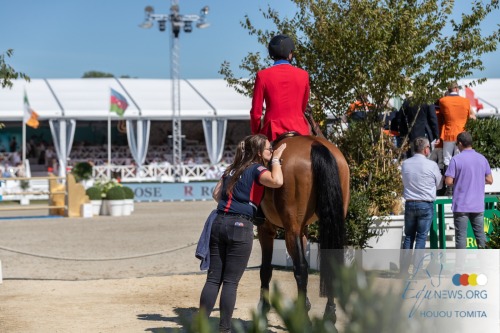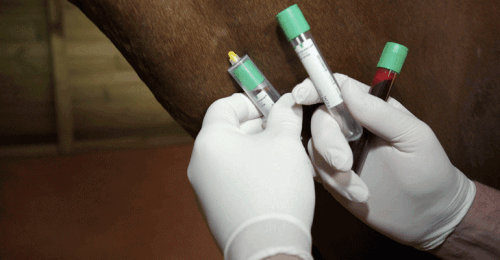Following our previous report on the FEI General Assembly, the international federation has released its updated rulebook for 2025. While the FEI jumping rules will undergo a comprehensive overhaul next year, this year's focus is on enhancing horse welfare. Significant changes have been made to the FEI Veterinary Regulations and Equine Anti-Doping Regulations to reflect this commitment.
There have been no significant changes to the FEI Jumping regulations. The only notable addition is the implementation of new rules regarding noseband tightness, which is now detailed in Article 257 and also addressed in the FEI Veterinary Regulations, François Mathy Jr. expressed his concern as it seems the FEI is not taking a stand where we go with our sport!
Changes FEI Veterinary Regulations!
Starting from February 1, 2025, influenza vaccinations will also need to be registered in the FEI HorseApp. This rule has been incorporated into Article 1002 of the regulations.
It is notable that the FEI is following the German federation's lead and no longer permits the shaving of the chin and muzzle, according to Article 1004.
Noseband Tightness
From May 1, 2025, the following provisions will apply regarding noseband tightness:
- The noseband must be adjusted sufficiently loose, as determined by an FEI-approved measuring device.
- This rule applies to all types of nosebands, both the upper and lower parts.
- The detailed protocol for measuring the tightness of the noseband(s) is included in the (discipline-specific) noseband tightness measurement protocol(s).
- A noseband that is too tight, as determined by an FEI-approved measuring device, will have the following consequences:
- Before the competition: The horse-rider combination may not start unless the noseband is re-adjusted to allow sufficient looseness.
- During the competition: The horse-rider combination will be excluded from the competition and the rider will receive a yellow warning card.
There have also been changes to Article 1054 - Same-Day Treatment. Injections or infusions with a substance not listed on the EPSL prior to the competition on the day of the competition are prohibited, as are any non-emergency treatments when the FEI Stables Area is closed.
The injection or infusion of vitamins and/or minerals during an event has been added to Article 1061 - Prohibited Treatments, while in case of an emergency, their use is to be supported using the Veterinary Form A.
General Regulations
Article 142 has been revised. Witnesses to horse abuse must report it immediately. During a competition, this can be done as a protest to an official (Article 161). Outside of competitions, this can be reported through the new FEI reporting form on inside.fei.org.
Fraud has been added as a reason for disqualification (Article 164.5). Article 164.11 has been expanded. The FEI can now impose sanctions for conduct that harms the integrity of equestrian sport, brings the FEI or equestrian sport into disrepute, or negatively impacts its image. Violations of the FEI Social Media Policy also fall under this category.
The sanctions table in Article 164.12 has been updated. Violations of the Social Media Policy can result in warnings, fines, disqualification, or suspension ranging from 3 months to 3-5 years. Violations of the FEI Codes of Conduct or bringing the FEI or equestrian sport into disrepute can lead to a lifetime suspension.



